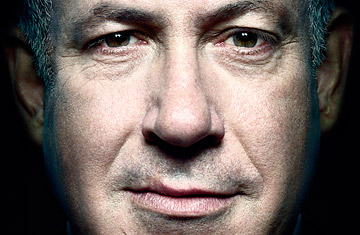
(3 of 4)
For Obama, the potential clash with Netanyahu created another problem. Already Republicans competing to take his place were attacking him for being soft on Iran and an insufficient friend to Israel. Obama could not afford the political damage that would come from a repeat of last year's disastrous summit. Netanyahu, for his part, realized he has more room to strike Iran before November than after. "If Netanyahu is considering attacking Iranian nuclear sites, he's in a better position doing it in an election year," says Elliott Abrams of the Council on Foreign Relations. "It will be supported by the GOP candidates. It will be popular here and in Israel."
By March 1, so many officials had said so many things that White House aides began to sense that few in either Jerusalem or Washington really understood where Obama stood, and the confusion threatened yet another public disagreement with Netanyahu. With the summit approaching, Obama toughened his language. Calling in Jeffrey Goldberg, a widely read reporter on Middle East issues at the Atlantic, Obama used his toughest threats yet. Whereas usually a President will say only that all options are on the table, Obama told Goldberg that a "military component" was possible. And in a direct effort to reassure Netanyahu, he said U.S. policy is to prevent a nuclear Iran, not contain one. "I don't bluff," he added.
Having recommitted the U.S. to a nuclear-free Iran, Obama then delivered a message to Jewish-American voters on the eve of the summit. Speaking at the AIPAC conference, he delivered a long list of his actions in support of Israel, from vetoing a U.N. Security Council resolution that would have found Israel guilty of apartheid to blocking a Palestinian move to be recognized as a state and helping get six trapped Israeli embassy employees out of their besieged Cairo embassy. "If during this political season you hear some questions regarding my Administration's support for Israel, remember that it's not backed up by the facts," Obama said, concluding, "I have Israel's back."
When the two men finally met on March 5, the Administration's efforts to control the politics of the summit seemed to have worked. The icy stares and outright antagonism were replaced by businesslike declarations of unity on Iran.
They appeared to move a little closer on Iran behind the scenes as well. Obama "convinced [the Israelis] of the absolute seriousness of how he takes this issue, preventing Iran from getting a nuclear weapon," says a White House official. "Everyone came away with no lack of clarity on that front." Further, says the aide, "there is a lot of agreement on strategy: continued diplomatic sanctions backed by the credible threat of all options on the table." Netanyahu claimed to have gotten increased assurances from the U.S. on a commitment to keep Iran from getting nuclear weapons.
